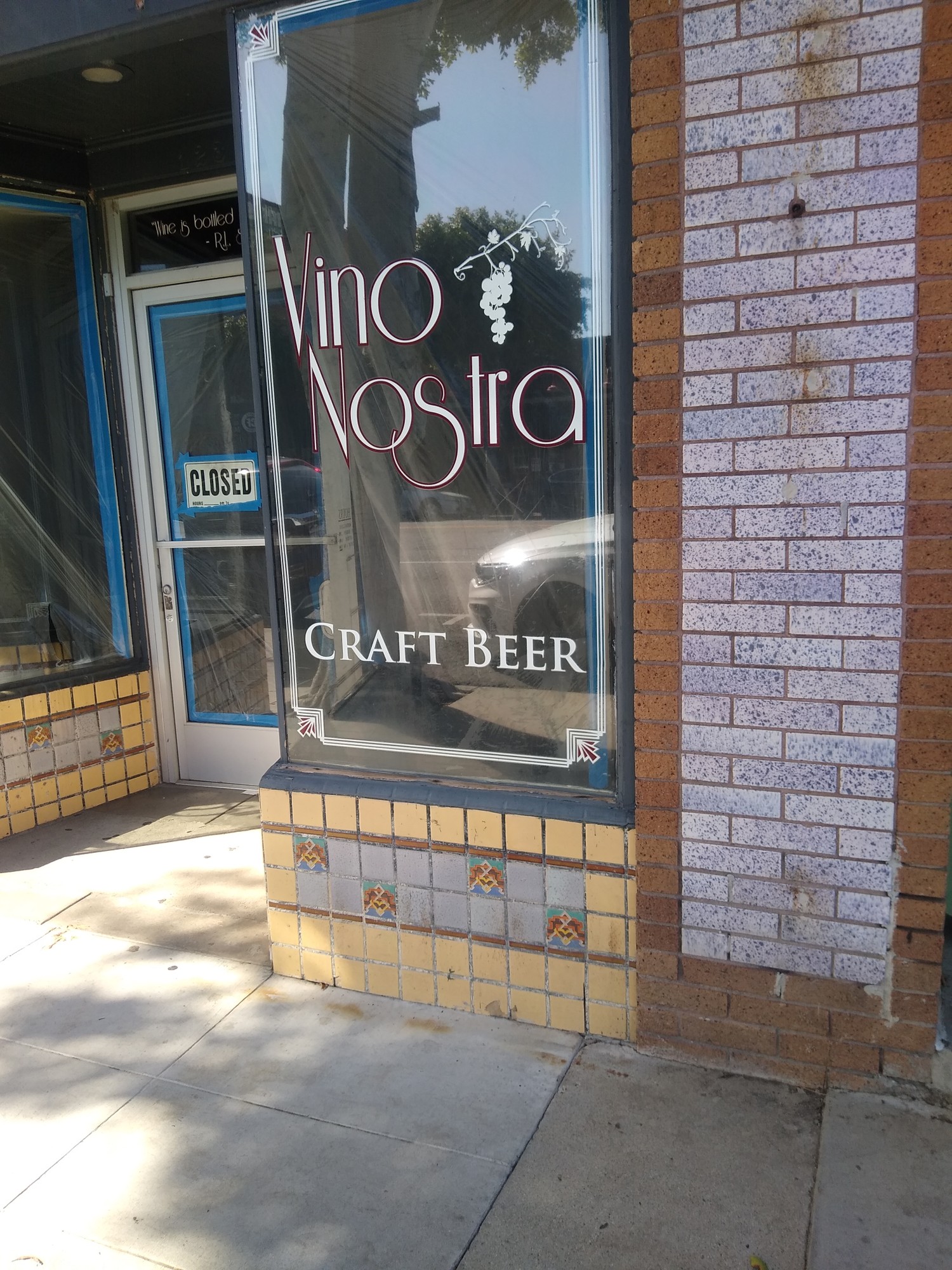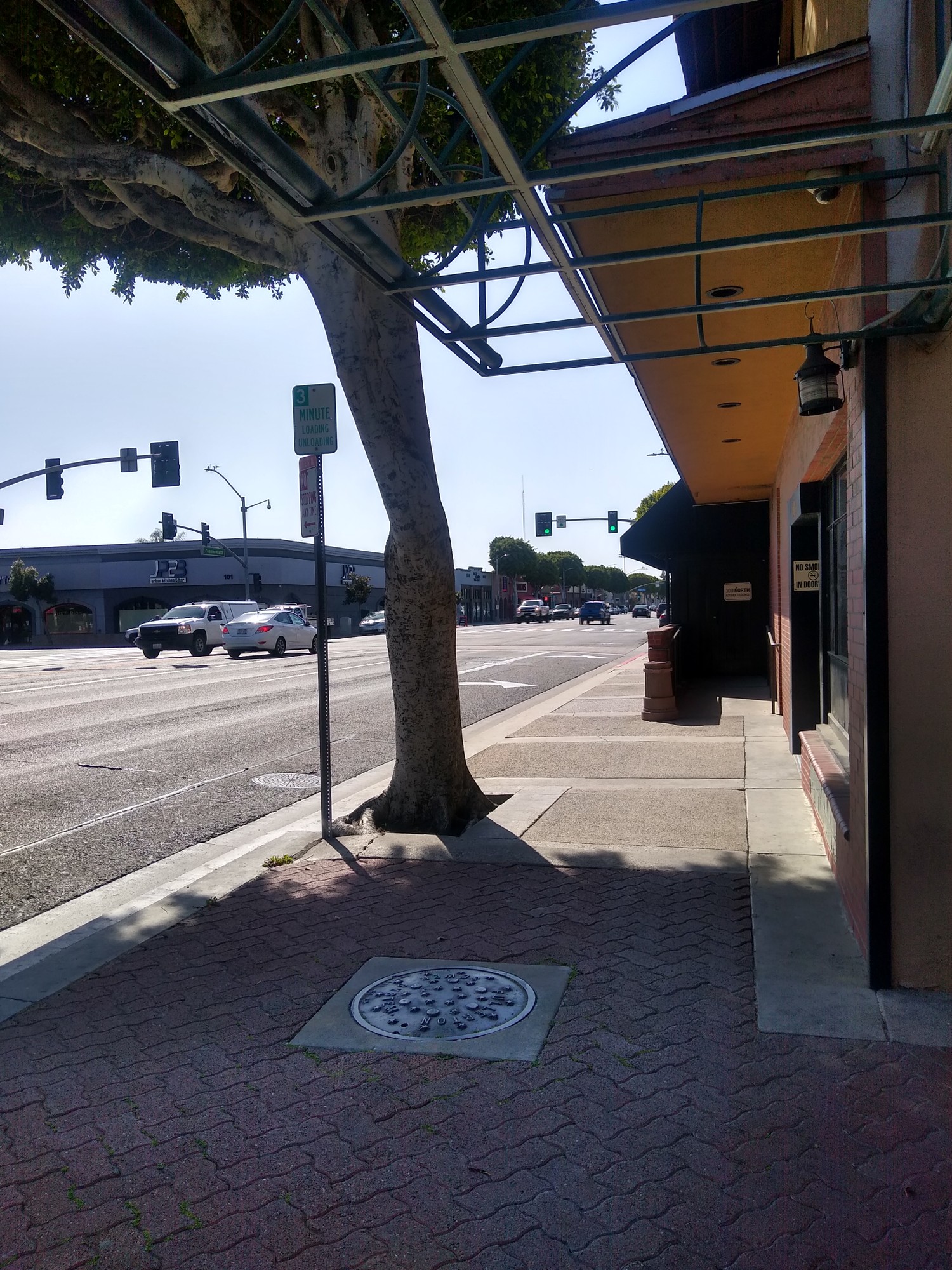Downtown Fullerton was once thriving with open coffee houses, trendy restaurants, vintage shops and nightclubs. Now, several empty storefronts and temporarily closed businesses are becoming more apparent across the area. Many of those who visit downtown Fullerton speak greatly about the nightlife in the area regarding bars and restaurants. The area has gone from packed places to forlorn because of the COVID-19 pandemic—an unusual sight for downtown Fullerton.
As Orange County makes its way into tiers that would allow more businesses to reopen, downtown Fullerton has been forced to change. Businesses large and small have had to adopt other strategies to remain open. Mandates of masks, outdoor dining, social distancing, gloves for workers or customers and improved cleaning and sanitary techniques are some of the new guidelines businesses are being forced to abide by. While this change may be temporary, it has impacted the flow of commerce in the downtown Fullerton area as some shops have permanently closed and others remain closed with an unknown date to reopen.
With a lack of foot traffic and a change of demographics in the area, it has been rough for storefront owners, given that most shops and eateries draw the majority of their business from students and the nightlife scene. Keeping up with regulations and restrictions is forcing businesses to work both remotely and shrewdly until the concerns regarding the Coronavirus spread dissipate.
Some businesses that have been affected with temporary closes are Dripp Coffee Shop and Calita Cafe, which were both great attractions for customers of the area, including students, like Luis Hernandez.
“Before COVID, I’d walk to Dripp and get a coffee and do some homework or just hang out with some friends, and the same goes for Calita Cafe,” said Hernandez. Since the closure of these coffee shops, Hernandez and other once-regulars have had to seek elsewhere to get their coffee.
Vino Nostra, a well-respected wine shop in the downtown Fullerton area, was also forced to close in late 2020, alongside McClain’s Coffeehouse, The Enchanted Closet and Tranquil Tea Lounge. Many storefronts have been left empty, bearing “CLOSED” signs on the doors and windows. Plans for new business could arise at the right price, but the area itself is still struggling to gain support—both from consumers who aren’t ready to head back out and from owners who hesitate to reopen.
Despite the closure of her physical store in downtown Fullerton, co-owner of Tranquil Tea Lounge, Michelle Phelps, has rebranded the business to Mākena Tea, based in her home state of Hawaii. Like many other restaurants and stores in the area, Tranquil Tea Lounge closed down indefinitely last year as the COVID-19 pandemic worsened in Orange County. During the uncertainty of whether or not her business would reopen, her landlord was still expecting rent to be paid. Reflecting on her decision to close the store in downtown Fullerton, Phelps said, “ Fortunately, they allowed us to move out of our location and end our lease early. Looking back on the past year with the restrictions and the length of time restaurants in California had to remain closed or work with very limited operations. the decision we made was the best for us.”
Since nightlife and businesses have come to a standstill, many who visit and who live in the area are left wondering what the next steps are for downtown Fullerton.
Restaurants and stores that once allowed customers to dine in and shop have been forced to place limits on the number of people allowed within the location. Such rules have forced owners to look to outdoor dining and take-out-only options. Abiding by these guidelines, downtown Fullerton business owners are beginning to see a small increase in customers.
Some businesses were able to remain afloat with the Payroll Protection Program—passed twice by Congress during Donald Trump’s presidency—and grants and small loan programs made available by the state and city. Others, like Albert Ochoa, owner of Revolucion Cantina, were awarded money by the “The Barstool Fund.” The project was launched by Barstool Sports owner, Dave Portnoy to help struggling businesses through the pandemic. Ochoa is one of the 332 businesses the fund has supported across the country, totaling over $37 million in awarded funds. This money gave Ochoa and his employees the chance to reopen the renowned nightclub as the city relaxed restrictions.
Although more events, bars, stores, and restaurants are beginning to reopen, times are still uncertain with a pandemic of this magnitude. Not abiding by policies and regulations for the COVID-19 pandemic can lead to another round of closures.
To prevent these risks, businesses must complete a checklist that would allow them to reopen. According to the city of Fullerton, all businesses must find industry guidance, perform a risk assessment and site-specific protection plan, train employees to limit the spread of COVID-19 by screening themselves and to stay home if any symptoms occur, provide disinfection protocols, and physical distancing guidelines. Once the checklist is completed all businesses must post an attestation, letting the public know they have completed the protocols to reopen.
These protocols will help in the process of reopening businesses, however, it is up to our community to come together and ensure a safe environment.


